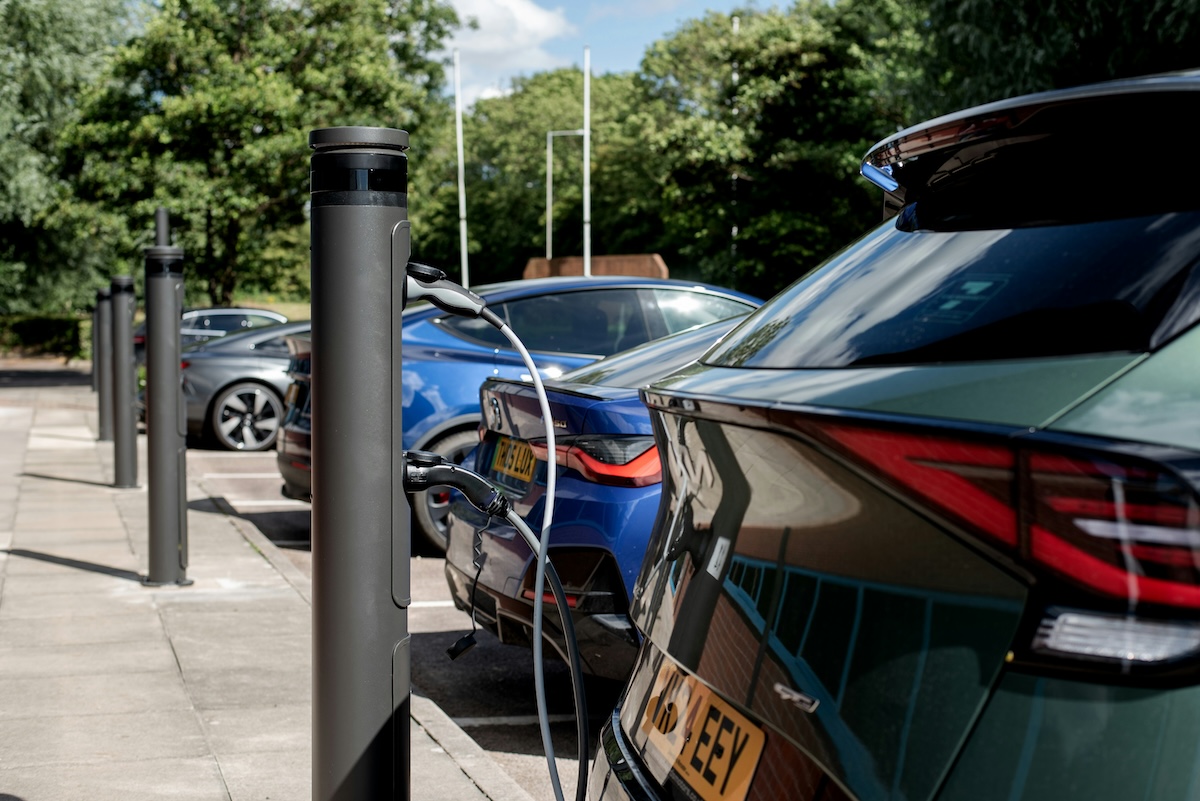Most people assume getting an electric car means paperwork, credit checks and a long approval process.
But EV salary sacrifice doesn’t work like that. The reality is that employees don’t need a credit check at all to drive a new car. Their employer does.
In this guide, you’ll learn why employees are exempt, what the employer credit check involves, and exactly what companies and employees need to provide to get the scheme up and running.
Do you need a credit check for an EV salary sacrifice car?
It depends who's asking!
If you’re an employee looking to get an EV through salary sacrifice then no, you do not need a credit check.
If you’re a company bringing salary sacrifice in as a benefit for your employees, then your company will have a standard business credit check carried out by the salary sacrifice provider (Here’s a list of the best ones).
This means:
❌ No employee credit check
❌ No hard or soft search on your credit report
❌ No impact on your credit score
✔️ Employers are assessed instead
✔️ Employees can still access an EV even with a poor or limited credit history
So, if you’ve ever been rejected for a personal lease, this is where salary sacrifice works differently. Because payments come directly from your gross salary, and the agreement sits with your employer, funders don’t need to evaluate you personally.
Want to learn more about the structure of the salary sacrifice scheme? Check out our guide to how salary sacrifice works.
If there’s one thing to take away from this section it’s this: your credit score won’t stop you from getting an electric car through your employer.
Salary sacrifice credit check vs personal lease credit check
If you’ve ever applied for a personal lease or PCP agreement, you’ll know how tough the credit checks can be. High scores, stable borrowing history, no missed payments, and even then, approval isn’t guaranteed. Salary sacrifice works very differently.
Here’s a simple side-by-side overview:
With salary sacrifice through a provider like loveelectric, you’ll avoid a credit check, reduce your taxable income, and get an electric vehicle that’s up to 60% cheaper than one without.
Find out how to get a car on salary sacrifice, explore what it means as an employee, or if you have the power in your company, book a demo with us here.
Why employees don’t need a credit check
We get told all the time by clients and prospects that salary sacrifice sounds too good to be true. And this is one of those reasons why.
To put it as simply as possible, employees don’t need a credit check because they’re not actually the ones leasing the vehicle.
Waiiiit a minute. It’s your salary the monthly payments are taken from, right?
Yes, that’s true. But the lease agreement itself sits with your employer, and that is what makes all the difference.
Here’s what that means in practice:
1. Your employer is the ‘customer’, not you
The leasing agreement is between the funder and your company. You’re simply the authorised driver, so your personal credit history isn’t relevant.
2. Payroll makes the payments secure
The payments come directly from your gross salary each month, but the business is the leaseholder. They’re essentially deducting the payment from your salary. Payroll handles everything automatically.
3. The scheme is designed to reduce risk
Fully comprehensive insurance, servicing, breakdown cover and maintenance are usually included. With fewer unknowns, there’s no need for individual credit assessments.
So there’s nothing to stop you from getting your dream EV through a provider like loveelectric. If your company already offers the scheme, look through our car catalogue and turn your dreams into reality.
If your company isn’t signed up to loveelectric, you can refer them to us. It only takes weeks to get set up and is zero cost to them.
Employer credit check requirements explained
Every company using a salary sacrifice car scheme does need to pass a standard business credit check. This is, as we’ve explained above, because the lease is held by the employer.
So, the funder needs to confirm the business is stable enough to support the benefit. They’ll look for:
- At least two years of trading history: Most funders want to see a minimum of two years in business. It’s a straightforward indicator of stability and helps them set an appropriate credit line.
- A positive financial position: A company doesn’t need to be huge, but funders will check for things like profitability or a healthy net worth. In many cases, a net worth of around £500,000+ is considered strong enough for approval.
- Stable team structure: Low staff turnover and a consistent payroll pattern help demonstrate that the business can support long-term benefits like salary sacrifice.
- Your sector: Some sectors, like traditional bricks-and-mortar retail, are seen as higher risk. Even then, approval isn’t impossible; the funder may simply request more information.
If you’re curious how your own company measures up, you can try our salary sacrifice eligibility checker, which gives a quick sense of employer readiness before applying.
What employers may need to provide during the credit check
Most credit checks are soft-touch and done automatically via Companies House data.
Most loveelectric applications are fully approved in a matter of days, meaning employees can start ordering cars almost immediately once credit lines are set.
However, for smaller, newer, or more complex businesses, funders may request supporting documents. Such as:
- Latest full annual accounts
- Management accounts (if the business year is mid-cycle)
- Profit & loss statement
- Balance sheet
- Projected staffing numbers (to determine likely scheme uptake)
- Confirmation of payroll processes
- Details of any parent company guarantees, if relevant
These documents help the funder understand the company’s financial position and set a suitable credit line for the scheme.
Employee eligibility requirements (no credit check, but some criteria)
Even though you won’t go through a credit check, there are a few requirements employees need to meet before taking out a salary sacrifice car. They’re mainly related to insurance and HMRC rules.
Here’s what most employees need to qualify:
1. You must be a permanent employee
Salary sacrifice is based on predictable income, so contractors and temps usually aren’t eligible.
2. You must be aged 18–65
This aligns with insurance requirements. Some exceptions can be made for over-65s, depending on employer arrangements.
3. You need a full UK driving licence
Funders and insurers require this as standard.
4. Limited recent driving offences
To keep insurance costs fair for everyone, employees typically must have:
- fewer than 2 Category A convictions
- no more than 1 at-fault claim in the past three years
- no driving bans in the past five years
5. You must stay above the National Minimum Wage
After the salary sacrifice deduction, your pay can’t fall below the legal minimum. This is a HMRC rule to ensure the benefit is compliant. If you want to understand how deductions affect take-home pay, our guide on the car scheme pros and cons explains it by tax bracket.
Worth knowing: loveelectric’s model is intentionally designed to be accessible and we even offer used cars so that more people can drive an EV without worrying about financial barriers or complex approval processes.
6. You may need to meet internal company benefit criteria
Some employers set their own eligibility rules, for example, minimum probation periods or seniority requirements.
If you are eligible, you’ll be able to get an EV for an affordable price, reduce your taxable income, and do your part to create a more sustainable world. Explore all the employee benefits of salary sacrifice for EVs.
Does a salary sacrifice car affect your credit score?
No. A salary sacrifice car has no impact at all on your personal credit score. Because the lease sits with your employer and not with you, there’s:
- no hard credit check
- no soft search
- no new account opened in your name
- no record of the lease on your credit file
Nothing about the arrangement appears on your credit report, and taking an EV through salary sacrifice won’t affect your ability to borrow in the future.
The only financial change is your gross salary reducing and that’s what makes the scheme so tax-efficient for employees.
So, all that to say: rest easy knowing that your credit score stays exactly the same.
How loveelectric makes the process simpler
One of the biggest reasons people choose salary sacrifice through loveelectric is that the entire process is designed to be as simple, and low risk, as possible. From onboarding to driving away your EV, we remove the admin and uncertainty that usually comes with getting a car.
Here’s how we make it easier:
1. A quick, guided setup for employers
We support employers through every step of approval. From the initial eligibility check to getting credit lines set by the funder, our team helps companies navigate the process smoothly.
For most businesses, this takes less time than setting up a gym benefit or cycle-to-work scheme.
What’s more, employers benefit from our Zero Risk Guarantee, which protects them from early termination costs (something not all providers offer).
.avif)
2. Transparent pricing from day one
No hidden fees. No unexpected running costs. Insurance, servicing, maintenance, breakdown cover and tyres are included as standard.
3. 10-minute monthly admin
We automate almost everything, from payroll reports to insurance renewals, so employers spend only a few minutes a month on scheme administration.
4. Support if your circumstances change
Whether you switch employers or need to adjust your mileage, we help you make the right changes with as little disruption as possible.
See how much you could save on your dream car with our free EV salary sacrifice calculator.
%20(1).avif)
FAQs about salary sacrifice credit checks
Can I get a salary sacrifice EV with bad credit?
Yes. Your credit history isn’t part of the approval process. As long as you meet the scheme’s basic eligibility criteria (e.g. driving licence, insurance requirements, above minimum wage), you can join.
Why does my employer get a credit check but not me?
Because your employer is the one taking out the lease. You simply sacrifice part of your gross salary to access the benefit. But it’s not an uphill climb for your employer and employers stand to gain financial benefits too.
Does the business credit check affect how many cars a company can order?
Yes. The funder uses the employer’s credit assessment to set a credit line, a maximum value the company can lease at one time. As the business grows or demonstrates consistent usage, the credit line can increase.
What happens if an employer has a low credit limit?
The scheme can still launch, it simply starts with fewer cars. Credit lines can be reviewed and increased later, especially when the company provides updated accounts.
Can a new or early-stage company still get approved?
Possibly. If the business has strong cashflow, investment backing or solid management accounts, funders may approve with a smaller credit line. Some companies will need to provide extra documentation to demonstrate viability.
Do partner companies (like leasing funders) run multiple credit checks on the employer?
No. A single business credit check is completed during onboarding.
Will switching jobs trigger a new credit check?
Only if your new employer is joining the scheme for the first time. The employee is never checked, but the new employer will undergo the standard onboarding assessment.
Does the scheme affect the employer’s credit rating?
Not negatively. Salary sacrifice agreements are treated similarly to other business leasing arrangements. Payments are predictable and low-risk, and the presence of Early Termination Protection with loveelectric actually reduces overall liability.




.avif)

